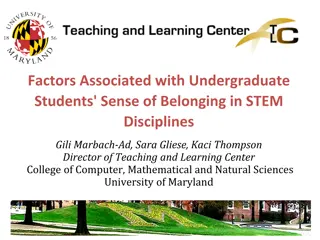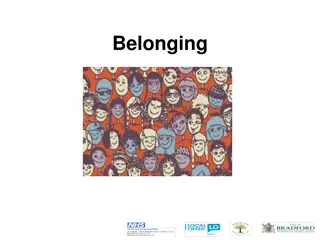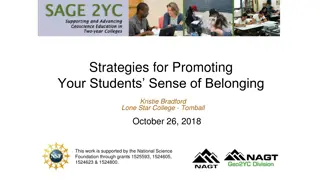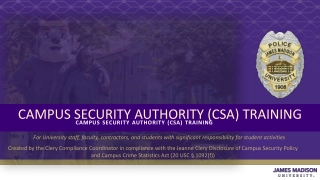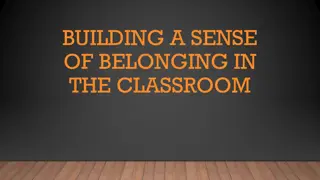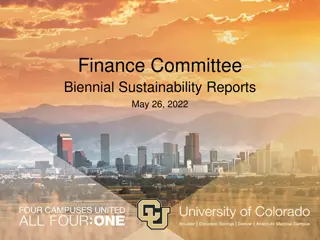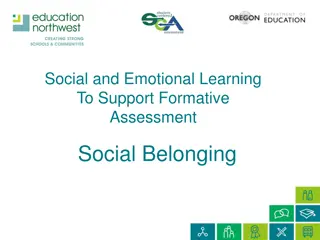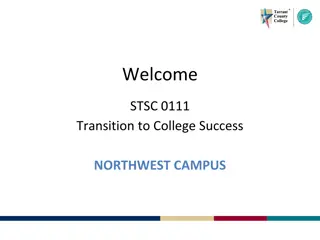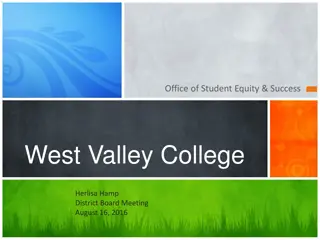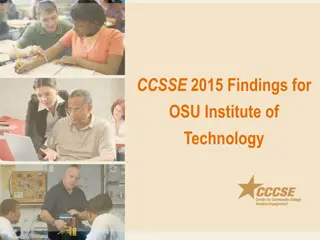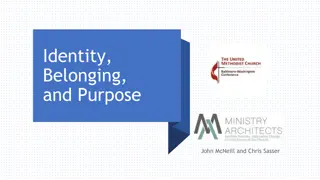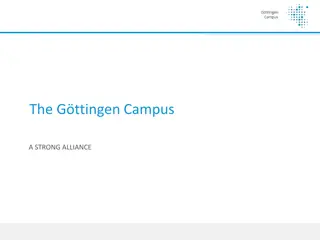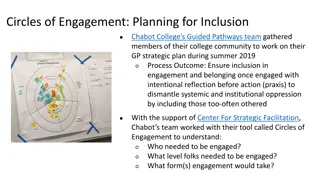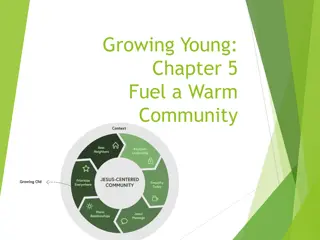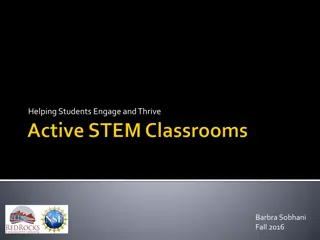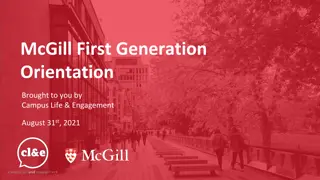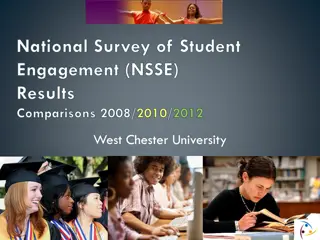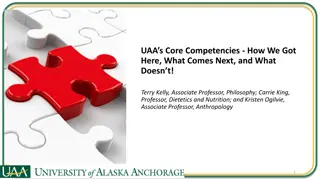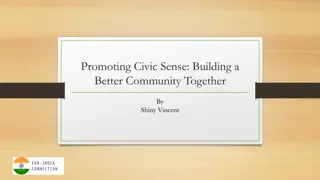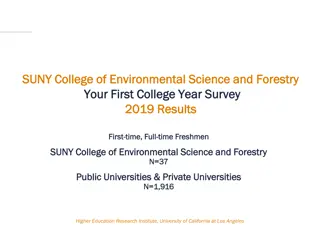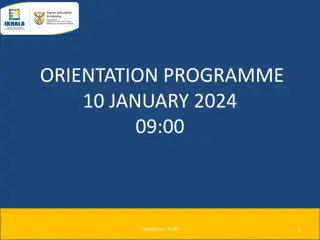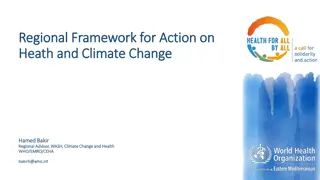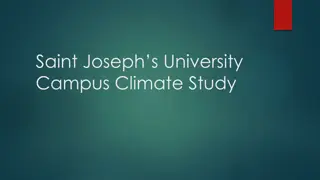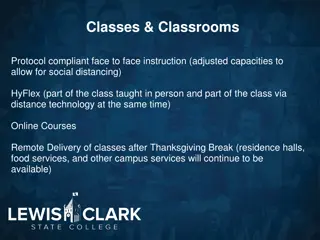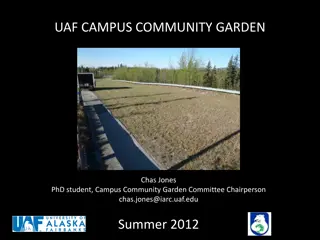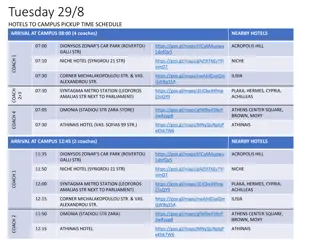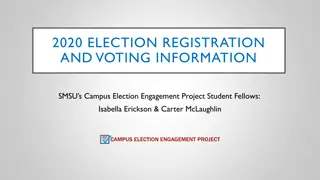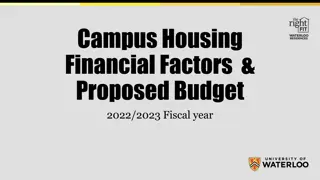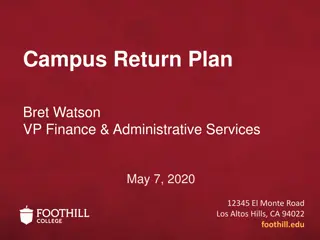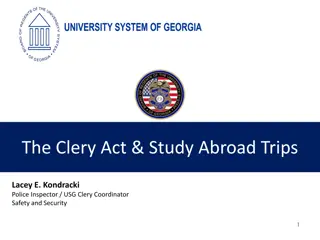Exploring Campus Climate, Sense of Belonging, and Student Engagement at a Women's College
This presentation delves into the experiences of students at a small, liberal arts women's college regarding campus climate, sense of belonging, and student engagement. Research questions focus on student perceptions, engagement levels, and their impact on educational outcomes. The study investigates differences in experiences between traditional and marginalized undergraduates. Various frameworks are utilized to understand the complexities of campus climate, sense of belonging, and student engagement.
Download Presentation

Please find below an Image/Link to download the presentation.
The content on the website is provided AS IS for your information and personal use only. It may not be sold, licensed, or shared on other websites without obtaining consent from the author. Download presentation by click this link. If you encounter any issues during the download, it is possible that the publisher has removed the file from their server.
E N D
Presentation Transcript
Campus Climate, Sense of Belonging, Student Engagement, & Educational Outcomes: A Mixed- Model Approach Leah Ozeroff, EdD lozeroff@gmail.com
Presentation Overview Background Research Questions Theory Methodology Findings Select Recommendations & Study Limitations Discussion
Research Questions What are student s prominent experiences with the campus climate at a small, liberal arts women s college?* How do students describe their sense of belonging to the institution? How are students engaged with their studies and the greater campus community? What are the relationships between perceptions of campus climate, sense of belonging, and level of engagement? How do these constructs for undergraduate students influence factors of success? How do experiences differ in these areas for traditional versus historically marginalized undergraduates (e.g., Students of Color, low income, first generation, non- heterosexual, non-binary)? *Please note: the college will be referred to as LAWC (liberal arts, women s college) for this presentation
Sense of Belonging Framework (Maestas, et al, 2007)
Student Engagement Framework (Kahu, 2013)
Community Cultural Wealth Framework Community cultural wealth framework (Yosso, 2005)
Findings: Faculty Interview- Context A look at LAWC- 1978: A look at LAWC- 2018 Predominately White, wealthy, heteronormative female study body Progressive, transformational campus climate Strong sense of belonging; superordinate identity of being a LAWC Woman Plentiful and accessible opportunities for social and academic engagement Highly diverse student enrollment (race/ethnicity, socioeconomic status, sexual orientation, gender identity, etc.) Similarly progressive, transformational campus climate, though with more tension Lower sense of belonging; increased diversity & increased difficulty in fostering a shared identity Fewer opportunities for social engagement
Role of CRT and Community Cultural Wealth That's my sense of support right there like this inner motivation to just continue because otherwise where will I go? What will I do? Cam, Asian, age unknown My sister definitely gives me a lot of support because before I came to LAWC a whole bunch of stuff happened to my family but she got me here, she drove all the way down and helped me move in. She recently just graduated with her Master s in public health relations so like she definitely motivates me to get my white coat, because I want to be a doctor. Shawna, Black, age 18
Relationship between variables: Focus Groups Structural diversity positive impact on perceptions of campus climate, sense of belonging, and engagement Identity politics and liberal intolerance negative influence on perceptions of campus climate, willingness to engage, and contributed to a general sense of exclusion
Relationship between variables: Diverse Learning Environments Survey Independent variables Descriptive statistics Multiple regression weights Mean 3.39 2.86 SD .59 .86 R with DV b .17 .51** -.19 .10 n 59 59 Opinion: Faculty empower me to learn here Opinion: I see myself as a part of the campus community Opinion: At least one faculty member has taken an interest in my development Opinion: I feel a sense of belonging to this campus Acad Program: Undergraduate research program Campus Satisfaction: Racial/ethnic diversity of the faculty Act in College: Joined an LGBTQ student organization Campus Satisfaction: Respect for the expression of diverse beliefs Act in Past: Attended programs focused on diversity (e.g., presentations, performances, art exhibits, debates) Act in Past: Participated in Campus Center activities (e.g., LGBTQ, Racial/Ethnic, Cultural, Women's/Men's, Religious, Disability Centers) Act in College: Participated in leadership training Act in College: Joined a racial/ethnic student organization Dependent variable -.22 .08 3.34 2.98 1.2 3.03 1.12 3.49 .63 .80 .41 1.11 .33 .99 .38* .66* .27* .26* .26* .39** .10 .49* .06 .12 .14 .08 .09 .56 .03 .19 .07 .11 59 59 59 59 59 59 2.85 1.27 .29* .21 .38 59 2.63 1.27 1.24 1.45 .45 .43 .27* .19 -.18 -.14 .34* -.31 -.29 .22 -.19 59 59 59 Opinion: If asked, I would recommend this college to others 3.22 .70 - - - 59 DLE Regression Analysis: adjusted-R = .526, F(12, 46) = 6.355, p < .001
Triangulation of Data: Key Findings Campus Climate Sense of Belonging Student Engagement Relationships between Constructs and Success Indicators
Select Recommendations Structural diversity among faculty Revise course evaluations Optional nature of personal disclosure Designated spaces campus with intentional focus on race/ethnicity Better communications about opportunities for engagement Limitations Potential concerns for generalizability.
Discussion Topics Questions and/or Feedback on study? Examples of similar projects at your institution? New ideas for mixed-methods approach to understand student experiences and educational outcomes?
PLEASE FILL OUT AN EVALUATION FOR THIS SESSION CLICK on the EVALUATION LINK IN YOUR CAIR APP THANK YOU!


